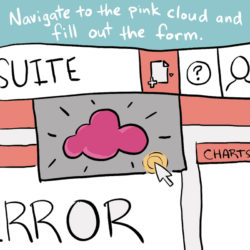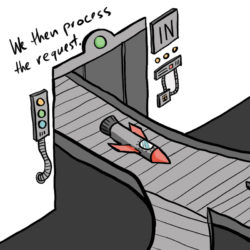This blog post is a roundup of some of the most important recent changes and updates to the NetSuite Administration.
Keeping your business’s data and operations running smoothly is essential. Keeping up with the latest changes and updates to the software can be daunting, but it’s important to stay current to take advantage of new features and enhancements.
Read on to find out what you need to know!
What Is a NetSuite Administrator?
A NetSuite administrator is responsible for the upkeep and maintenance of a company’s NetSuite account. This includes managing user access, configuring settings, and ensuring that data is accurate and up-to-date.
In addition, the administrator must be able to troubleshoot any issues that may arise. Because NetSuite is a complex system, the administrator needs to have a strong understanding of how it works. They must also be able to effectively communicate with users, as they will often need to provide instruction on how to use the various features.
Overall, the administrator plays an essential role in keeping a NetSuite account running smoothly.
PREVIOUS POST – What is NetSuite?
What Does a NetSuite Administrator Do?
In today’s business climate, it’s more important than ever to have a handle on your company’s finances. That’s where NetSuite comes in. NetSuite is a comprehensive financial software that offers businesses insight into their spending and income. And, at the heart of any good NetSuite implementation is a NetSuite administrator. In this, we’ll take a look at the role of a NetSuite administrator and some of the key responsibilities associated with the position.
A NetSuite administrator is responsible for configuring, deploying, and maintaining a company’s NetSuite instance. In addition to these duties, a NetSuite administrator also provides support and training to users on how to use the software. Given the critical nature of the role, it’s important to have a firm understanding of what a NetSuite administrator does before taking on the responsibility.
Roles & Permissions
One of the most important responsibilities of a NetSuite administrator is managing roles and permissions. Roles determine which users have access to which parts of the software, while permissions determine what users can do within those parts of the software (e.g., view records, edit records, delete records). By carefully managing roles and permissions, a NetSuite administrator can help prevent unauthorized access to sensitive data and ensure that users have the appropriate level of access to perform their job duties.
Reports & Searches
Another key responsibility of a NetSuite administrator is creating and maintaining reports and searches. Reports provide users with visibility into various aspects of their business, such as sales pipeline activities, customer invoices, and spending trends. Searches offer users the ability to quickly find specific records within NetSuite, such as customer accounts or vendor contracts. By creating accurate and up-to-date reports and searches, a NetSuite administrator can help users save time and improve decision-making throughout the organization.
KPI Dashboards
In addition to reports and searches, a NetSuite administrator may also be responsible for creating KPI dashboards. Dashboards provide users with real-time visibility into key performance indicators (KPIs) so that they can see how their company is performing against predetermined targets. By setting up dashboards for different users throughout the organization, a NetSuite administrator can help everyone stay up-to-date on the latest performance metrics and ensure that everyone is working toward common goals.
RELATED POST – NetSuite vs Salesforce: The Ultimate Showdown
Configuration & Customization
Two other areas where a NetSuite administrator plays an important role are configuration and customization. Configuration refers to the process of setting up NetSuite to meet a company’s specific needs (e.g., setting up new user accounts, assigning roles/permissions, and configuring workflows). Customization refers to making changes to NetSuite that are not possible through configuration alone (e.g., adding new fields to records, or modifying existing workflows). By handling both configuration and customization tasks, a NetSuite administrator can help ensure that NetSuite remains aligned with changing business needs over time.
SuiteApps Setup & Maintenance
NetSuite administrator may also be responsible for setting up and maintaining NetSuite’s SuiteApps. SuiteApps are built by using the SuiteCloud platform and these applications extend the functionality of NetSuite. For example, there are SuiteApps for CRM, e-commerce, and project management. By setting up and maintaining the SuiteApps that are most relevant to a company’s needs, a NetSuite administrator can help ensure that NetSuite remains a valuable tool for the organization.
Performance Optimization
Another key responsibility of a NetSuite administrator is performance optimization. This involves ensuring that NetSuite remains responsive and running smoothly despite increasing amounts of data or concurrent usage by multiple users. To do this effectively, a NetSuite administrator needs to have a good understanding of how NetSuite works “under the hood” so that they can identify potential bottlenecks and take steps to address them before they become problems.
Training & Support
Finally, a NetSuite administrator is also responsible for providing training and support to users. This includes creating training materials, conducting pieces of training, and answering user questions. By providing adequate training and support, a NetSuite administrator can help ensure that users can use NetSuite effectively and efficiently.
As you can see from this overview, there are many responsibilities associated with being a NetSuite administrator. While it may seem like a daunting task at first glance, it’s very rewarding – especially when you see how much your efforts improve the day-to-day operations of your company!
RELATED POST – NetSuite Inventory Management: A Comprehensive Guide
Why You Should Hire a NetSuite Administrator?
As your business grows, you may find yourself in need of more robust enterprise resource planning (ERP) and customer relationship management (CRM) solutions than what you currently have in place. At this point, you may want to consider upgrading to NetSuite—one of the most popular ERP systems on the market. But before you do, there’s one important question you need to answer: Should you hire a NetSuite administrator?
Here are four compelling reasons why the answer is “yes”:
A NetSuite Administrator is an Expert in Their Field
Implementing and administering a NetSuite system can be complex, so it’s important to have someone on staff who has the necessary skills and experience. A NetSuite administrator will know how to configure the system to meet your specific business needs, troubleshoot any issues that may arise, and train your employees on how to use the system effectively.
Hiring a NetSuite Administrator Gives You More Time to Focus on Core Business Activities
If you don’t have a dedicated IT team, then chances are good that your employees are already stretched thin trying to maintain your current system while also performing their day-to-day duties. By hiring a NetSuite administrator, you can free up your employees to focus on their core responsibilities and leave the administration of the system to someone who is specifically trained for that task.
Enhanced Business Productivity and Efficiency
A well-run NetSuite system can help increase productivity and efficiency by automating many of the processes that previously had to be completed manually. For example, you can use NetSuite to automate data entry, generate reports, create workflows, and manage inventory levels—all of which frees up your employees to work on other tasks.
Save Money
One of the main benefits of any ERP system is that it can help reduce costs by consolidating multiple disparate systems into one cohesive platform. This means fewer software licenses, less duplicate data entry, and reduced training costs—all of which add up to big savings for your business.
As your business grows, you will likely find yourself in need of a more robust ERP solution than what you currently have in place. When that time comes, you should seriously consider upgrading to NetSuite—one of the most popular ERP systems on the market today. And when it comes time to implement and administer your new NetSuite system, be sure to hire a qualified NetSuite administrator who can provide the expertise and support you need to ensure a successful transition.
RELATED POST – Supply Chain Visibility (SCV)? How Can it Benefit Your Business?
Qualifications to Look for When Hiring a NetSuite Administrator
Are you in the process of hiring a NetSuite Administrator? If so, experience and qualifications should be at the top of your list when reviewing resumes. In this blog post, we will review some of the skills and previous experiences that are most helpful for success in a NetSuite Administrator role.
NetSuite Experience and Qualifications
The ideal candidate for a NetSuite Administrator role will have significant experience working with NetSuite CRM and ERP. They will also have configured drop-shipping components within the NetSuite environment and have exposure to integrating NetSuite components with third-party applications. Ideally, candidates will also have at least one year of experience acting as a NetSuite Technical Administrator or NetSuite Consultant.
Some specific skills and qualifications that may be helpful for success in a NetSuite Administrator role include:
- Experience configuring and managing workflows
- Strong knowledge of suitelets, saved searches, user permissions, roles, and profiles
- Ability to develop customizations using SuiteScript 2.0
- Experience troubleshooting issues and performing root cause analysis
- Excellent communication skills
- Strong analytical and problem-solving skills
- Ability to work independently as well as part of a team
- Organized and detail-oriented
RELATED POST – SuiteWorld 2022: OdeCloud NetSuite Community Meetup Recap & Announcement
Reasons to Use OdeCloud for Your NetSuite Administration Needs
As your business grows, so too does your need for efficient, reliable technology solutions. NetSuite is a comprehensive, cloud-based software suite that can help streamline your business operations. However, administering NetSuite can be complex and time-consuming.
That’s where OdeCloud comes in. OdeCloud is an inclusive, technology-powered talent solution for optimizing your NetSuite platform to support your business growth. Here are four reasons to choose OdeCloud for your NetSuite administration needs:
- We are experts in NetSuite administration. Our team of certified NetSuite professionals who have extensive experience in administering and optimizing the NetSuite platform. We will work with you to tailor a solution that meets the specific needs of your business.
- We save you time and money. OdeCloud’s technology-powered talent solution helps you optimize your NetSuite platform quickly and efficiently, without incurring the high costs associated with traditional consulting firms.
- We offload the burden of NetSuite administration so that you can focus on running your business. By outsourcing your NetSuite administration to OdeCloud, you free up valuable time and resources that can be better spent on other aspects of your business.
- We provide ongoing support and maintenance. Even after we have optimized your NetSuite platform, our work is not done. We offer ongoing support and maintenance to ensure that your system continues to run smoothly and efficiently.
Outsourcing your NetSuite administration to OdeCloud is a smart, cost-effective way to streamline your business operations. Our team of certified NetSuite professionals will work with you to tailor a solution that meets the specific needs of your business and provides ongoing support and maintenance to ensure that your system runs smoothly and efficiently.
Contact us today to learn more about how we can help you grow your business with NetSuite!










